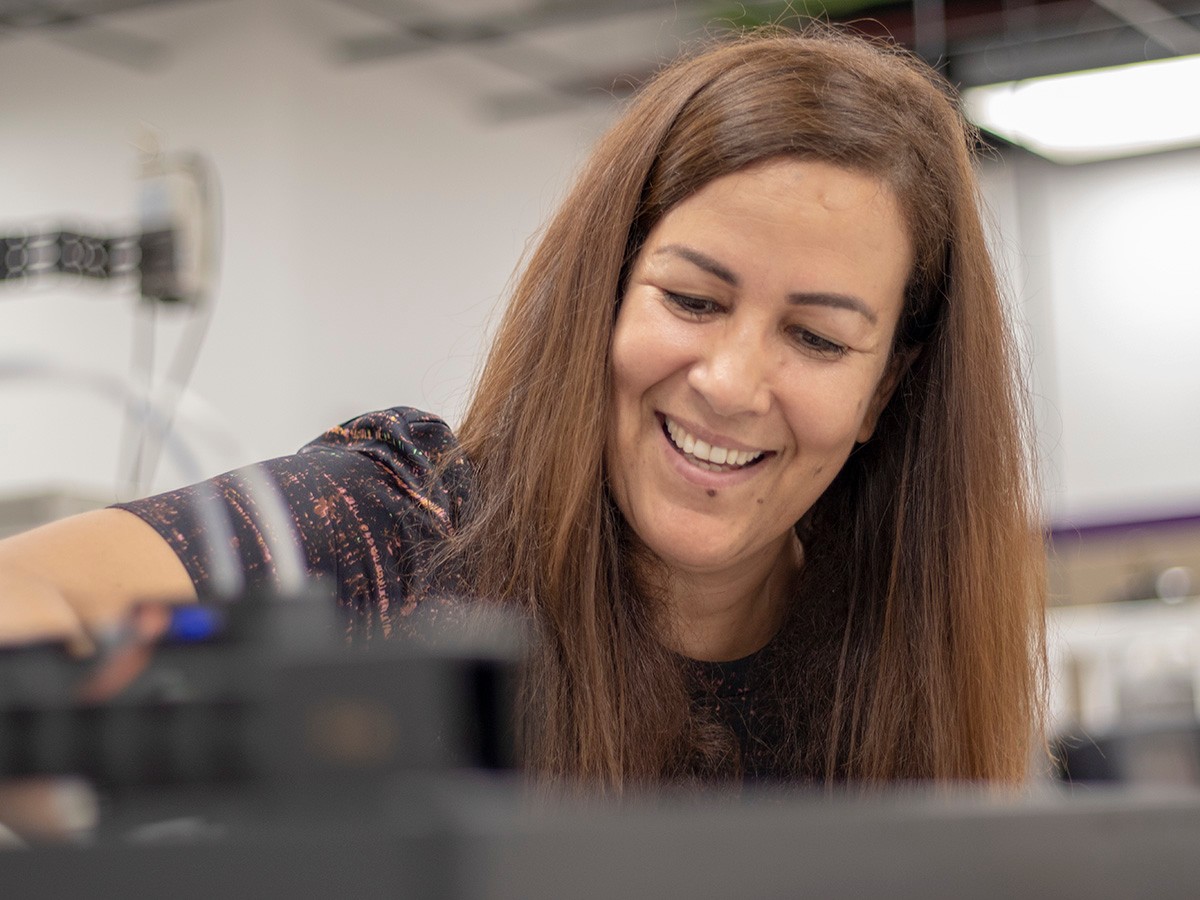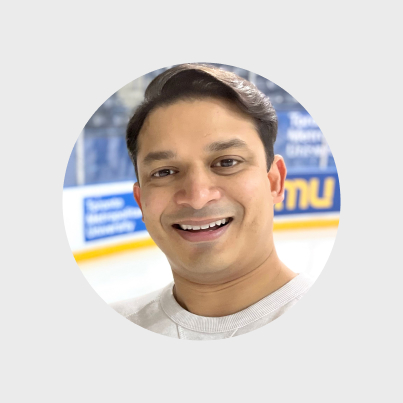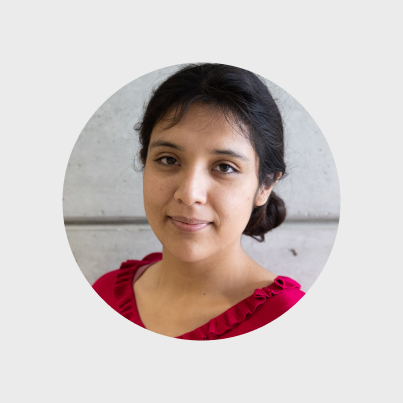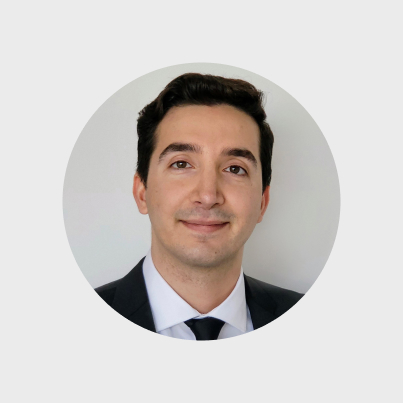Mechanical & Industrial Engineering Graduate Degree Program
What makes this program different?
Through our interdisciplinary curriculum and expert faculty, mechanical and industrial engineering students are advancing robotics, mechanical systems, operational systems and processes, biotechnology, artificial intelligence and more, in ways that can greatly improve human health, safety and reliability, sustainability, security and even everyday consumer products.
Degree:
PhD, MASc, MEng
Department
Mechanical, Industrial, and Mechatronics Engineering
Fee range:
Domestic: $9,517-$10,622
Options:
1 or 2 yr FT, 9 specializations
State-of-the art and sophisticated facilities
From developing biotechnologies to disruptive 3D modelling using AI, we provide access to 9 specialized labs so students can perform cutting-edge experimental investigation and intensive research.
Learn from world-renowned faculty researchers & experts
Learn from Canada Research Chairs, lab founders, and leading researchers like Dr. Dworkin who is working to mitigate the world’s many pollutants or Dr. Taghipour who is developing mathematical optimization models to improve the function of pivotal everyday machines.
Personalized attention & 1-1 support
With small cohort sizes, elite candidates enrich the shared learning experience, as each student thrives because they receive the individual attention needed to grow as an academic, skilled professional, leader and agent of change.

Explore your journey
PhD
Ideal for engineers with a master’s degree who want to pursue a career in academia or a professional research career.
MASc
Ideal for engineers with an undergraduate degree who want to pursue a specific research area or idea.
MEng
Ideal for engineers with an undergraduate degree who want to elevate their credentials and increase their job market opportunities.
| PHD | MASc & MEng |
|---|---|
Grade requirements:
|
Grade requirements:
|
Application requirements:
|
Application requirements:
|
Courses offered in any of the focus areas explore a diversity of topics from heat transmission and nano manufacturing to combustion engineering and rocket propulsion. Whether you’re in a research-intensive program or pursuing professional development, students benefit from full-scale equipment, the latest technology and faculty with the right combination of expertise to prepare students for exciting careers.
Visit the graduate calendar for full course descriptions and see which courses are offered this academic year.

Our department is a vibrant hub of innovation, where hands-on learning and experimentation aren't just encouraged—they're integral. We pride ourselves on offering a dynamic educational environment that champions EDI, ensuring all students have the opportunities they need to succeed and innovate.

You are welcome to our exciting program where you will find a stimulating platform for academic excellence and for professional and personal growth. Our faculty, staff, and technical officers are always available to assist you in your journey of success. Our values are built on the principles of equity, diversity, inclusion, and accessibility.
| PhD | MASc | M.Eng |
|---|---|---|
|
|
|
Grade requirements: If a course mark is less than B- (2.67/4.33 or 70%) for both MEng and MASc, and less than B (3.00/4.33 or 73%) for PhD, you must repeat the course or alternate with another. Failure to maintain an acceptable academic standing could result in your being asked to withdraw from the program. Failure in more than one course will be considered grounds for dismissal.

Enrich your learning through research, labs & community
Choose from nine fields of study and explore our program-specific labs.
Biomechanics is the application of mechanical principles to living organisms. This area includes bioengineering, research and analysis of the mechanics of living organisms, occupational biomechanics and the application of engineering principles to biological systems. Biomechanical research may be carried out at the molecular level or may involve the study of tissue and complex organs.
Research Areas:
- Development and testing of novel glass-based bioactive coatings and adhesives
- Effects of gender and age on bone fracture
- Fatigue damage assessment of Haversian cortical bone under physiological loads
- Minimizing shoulder load in light manual labour
- Navigation and deformation of catheter in vascular artery
Data science is an interdisciplinary field that combines expertise from several academic areas such as statistics, math, computer science and operations research. Data science research revolves around data mining and big data with the objective of using powerful computing environments and efficient algorithms to solve practical problems. Accordingly, research in this field includes developing predictive/prescriptive models (for example, statistical/machine learning models), designing efficient algorithms and providing decision support systems.
Research Areas:
- Decision-making under uncertainty by using Bayesian machine learning methods to analyze complex structures in data to build recommender systems and predictive models
- Development of novel algorithms such as case-based reasoning systems, ensembles of neural networks, embeddings (tensor factorization, gradient boosted trees, ensembles) and models such as reinforcement learning, Bayesian networks and neural networks
- Development of recommender systems based on Gaussian processes, nonparametric Bayesian methods, approximate inference algorithms, graphical models, Monte Carlo methods, supervised and unsupervised learning, and model comparison in an applied manner
- Improving learning by using novel approaches such as measuring and quantifying cognitive biases and learning with internal and external information sources
- Predictive and prescriptive analytics
Research Laboratories and Facilities:
Ergonomics, or human factors, is the scientific discipline concerned with the understanding of interactions among humans and other elements of a system, and the profession that applies theory, principles, data and methods to design in order to optimize human well-being and overall system performance.
Practitioners of ergonomics and ergonomists contribute to the design and evaluation of tasks, jobs, products, environments and systems in order to make them compatible with the needs, abilities and limitations of people.
Research Areas:
- Organizational design and management
- Process simulation and improvement
- Work measurement
Research Laboratories and Facilities:
This field focuses on the processes, methods and technologies involved in manufacturing and materials, as well as their applications. You will learn to improve the processes, microstructures, properties and performance involved in developing advanced and critical engineering materials and manufacturing goods.
Our labs are equipped with state-of-the-art materials and testing facilities, including scanning electron microscopes, X-ray diffractometers and a fatigue testing system. Industry demand for experts in this field is high, given the wide range of manufacturing in Canada and around the world.
Research Areas:
- Development, testing and application of lightweight alloys
- Fatigue deformation of advanced and critical engineering materials
- Integrity and reliability of welded joints using various techniques (ultrasonic spot welding, friction stir welding, laser welding and resistance spot welding)
- Mechanical behaviour and modelling of nanomaterials and biomaterials
- Metal matrix composites and ceramic matrix composites
Research Laboratories and Facilities:
Mechatronics, or mechanical and electronics engineering, is the synergistic combination of mechanical engineering, electrical engineering, control engineering, systems design engineering and computer engineering to create smart machines. Microelectromechanical systems (MEMS) is the technology of the very small, and it merges at the nanoscale into nanoelectromechanical systems (NEMS) and nanotechnology. It is often used in cutting-edge biomedical and industrial applications.
Research Areas:
- Aerial robotic systems and aerial manipulation
- Haptic interfaces
- MEMS fabrication using abrasive jet machining and laser
- MEMS materials, MEMS reliability and fatigue analysis
- Microfluidics, nano-energy and nano-biosensors
- Micro-robots, medical robots and image-guided robotic surgery
- Microsensors and micro-actuators
- Micro-systems and MEMS with a focus on micro-manipulation, optical MEMS and MOEMS
- Nano-medicine for cancer diagnosis and therapy
- Nano-systems and NEMS with a focus on ultrafast laser nano-fabrication and processing, and 3-D micro- and nano-structuring
- Telerobotics and simultaneous localization and mapping (SLAM)
- Visual servo control of robots (visual servoing)
Research Laboratories and Facilities:
Operations research is a powerful approach to solving various types of complex problems. It can be employed in manufacturing systems, supply chains and service industries to reach superior decisions that maximize profit, improve efficiency, reduce cost or minimize risk.
Research Areas:
- Financial issues in supply chains
- Inventory and logistics management
- Maintenance and spares optimization
- Modelling human learning and forgetting processes
- Physical asset management
- Production planning and scheduling
- Reliability, diagnostics and prognostics
- Reverse logistics
- Sustainable supply chains
- Thermodynamic production economics
Research Laboratories and Facilities:
Solid mechanics is the study of the strength and behaviour of solid materials under the action of applied external loadings. Physics and other scientific approaches are used to research stress and strain, elasticity and plasticity, tension, torsion, fatigue, creep and more.
Research Areas:
- Casting of materials
- Characterization and analysis of materials and structures for mechanical and aerospace applications
- Computational mechanics applied to such other areas as biomechanical devices
- Creep and plasticity
- Failure analysis and durability of load-bearing engineering components
- Investigation into the vibrations and buckling of composite plates and shells
- Modelling of material removal mechanisms due to high-speed solid particle impacts
- Thermal stresses
Research Laboratories and Facilities:
This field focuses on the development of more efficient energy systems which have less impact on the environment. You will gain expertise in advanced computer simulation methods, such as computational fluid dynamics (CFD) and finite element methods. You will also learn experimental measurement techniques, such as laser interferometry, phase Doppler interferometry, laser-induced fluorescence, inverse methods and hot-wire anemometry.
Research Areas:
- Advanced heating ventilation and air conditioning systems, ground coupled heat pumps, whole-building energy modelling, fenestration performance modelling, solar energy utilization and improved manufacturing processes
- Characterization of turbulent and combusting flows, modelling of multiphase flow and heat transfer and measurement of diffusion coefficients under microgravity
- Fluidized bed heat treatment, semiconductor crystal growth in microgravity, waste heat recovery, fundamental research in fluid mechanics and heat and mass transfer
- Sustainable energy conversion systems such as improved fuel cell systems, solar energy applications, cogeneration and green building energy systems
Research Labs and Facilities:
This area of study focuses on the mechanics of vibration with an eye to producing more stable, resilient mechanisms that can exert a finer degree of control. This field finds applications for the scientific understanding of the dynamics of linear time-invariant systems, including basic concepts of linear dynamics of discrete systems, the dynamics of controlled structural systems and analysis of the dynamic behaviour of continuous systems using discretization techniques.
Research Areas:
- Energy harvesting
- Flow- and acoustics-induced vibration and wear and applications to components in nuclear power plants
- Nonlinear dynamical systems, chaos and time series analysis
- Nonlinear vibration
- Vibration mitigation techniques
Research Labs and Facilities:
Through tools, facilities, mentors and access to industry opportunities our researchers, like those in the example below, are focusing their talents, following their passions and making significant and sought-after research breakthroughs.
What differentiates this project is that it connects what the plant wants to the machine being built. The plants drive the agriculture that happens and decide how they get produced.
“TMU has provided the highest calibre students. When we have gone into this challenge, which is only 18 months, all of a sudden we can get all this work done because we are working with the best people.“

Whether you’re looking to join a student group, advocate for your peers in student government, challenge yourself and others at our graduate symposium, or just looking for support, we encourage you to make the best of your experience at TMU.

What can you do with this degree?
Career possibilities
Mechanical and industrial engineering graduates find there are endless opportunities where the skills gained from their degree are responding to urgent demands. Many of our graduates go on to rewarding careers designing, developing, and improving machines, while others focus on improving business and production processes in manufacturing and healthcare companies. With expertise spanning from biomechanics or data analytics to mechatronics and solid mechanics there are a variety of rewarding career opportunities as industrial designers, supply chain analysts, professors and more.
Career possibilities
- Alphabet
- Apple
- Bombardier
- General Motors
- IBM
- Ontario Power Generation
- Pfizer
- Siemens Canada
- NASA
- The Walt Disney Company
- +More

Dr. Zia Mahboob, P.Eng
Chief, Stress Engineering
De Havilland Aircraft of Canada
“TMU’s/FEAS’ school of graduate studies was an excellent environment to grow into my specialty disciplines of aerospace structures and composite materials. The classes were taught by passionate professors, the post-docs I worked with were resourceful experimentalists and great mentors, the administrative staff really looked after the interests of graduate students, and my fellow student-colleagues were brilliant and creative. As an engineering professional and an educator, I look back at my time at TMU with much gratitude.”
Mechanical and Industrial Engineering (BEng) ʼ07, (MASc) ʼ09, (PhD) ʼ18

Karen Natalie Penaranda Valdivia
Quality Improvement Specialist, North York General Hospital
“The Mechanical and Industrial graduate program at TMU is devoted to ensuring holistic student success and fostering transformative research. I found a community that truly cares for my well-being. I strongly encourage you to join TMU for its commitment to students, academic excellence, innovative research, and social equity.”
Industrial Engineering (BEng’0 ’21, (MASc) ’23, (PhD) ʼ27

Dr. Payam Emadi
Forensic Mechanical and Materials Engineer, Origin And Cause
Canada’s largest forensic engineering and fire investigation firm
"My time at Toronto Metropolitan University was more than just an education—it was where my passion for mechanical engineering was nurtured, where lifelong connections were forged, and where professors took a genuine interest in my growth. From undergrad to PhD, the experiences I had there shaped me into the professional I am today, and for that, I will always be grateful."
Mechanical Engineering (BEng) ʼ14, (MASc) ʼ17, (PhD) ʼ22

Funding & awards for mechanical and industrial engineering students
With numerous scholarships and awards available for graduate students, particular to each person’s circumstance, we are helping students meet the financial demands of higher education. There are a number of scholarships and awards available specifically for graduate students in mechanical and industrial engineering including:
There are five graduate awards available for this academic year:
- Dr. Jacob and Helen Friedman Graduate Award (one award valued at $2,500)
- Mechanical, Industrial, and Mechatronics Engineering Graduate Studies Award (10 to be awarded, six for Mechanical and four for Industrial valued at $2,000 each)
Eligibility Criteria
To be eligible for these awards, you must:
- Be registered as a full-time graduate student in the Department of Mechanical, Industrial, and Mechatronics Engineering.
- Have clear academic standing with a cumulative grade point average of at least A-.
- Be within two years of starting the MASc program or within four years of starting a PhD program.
- Have not received an MIE graduate award in your current program (MASc or PhD).
Selection Criteria
Each award will be based on academic and research excellence, plus leadership and service. Selection criteria will be assessed as per the table below.
Weight |
Criteria |
Evidence |
|---|---|---|
30% |
Academic excellence
|
Transcripts |
50% |
Research excellence
|
CV Cover letter List of publications |
20% |
Relevant experience and achievements obtained within and beyond academia Professional, academic and extracurricular activities, as well as collaborations with supervisors, colleagues, peers, students and members of the community, such as:
|
CV Cover letter |
As a condition of accepting the award, the winners will be required to prepare a poster presentation for the awards night and answer questions from attendees.
Application Process
A complete application consists of:
- An updated CV.
- A cover letter (maximum 500 words) indicating why you deserve the award with an emphasis on the quality of your research.
- An unofficial transcript.
- A list of publications resulting from your current program of study with your supervisor(s). Publications must meet the following criteria:
- Must be arising from research in your current program (MASc or PhD).
- Must be published, presented, accepted, pending publication or submitted (clearly identify).
Deadline
The deadline is typically observed in March of each year. Specific deadlines will be posted during our next round of applications.
During the fall and winter graduate seminar presentations, the audience will be asked to rate each presenter. Based on these peer evaluations, three awards for best presentation will be awarded: first place ($500), second place ($300) and third place ($200).
The awards will be presented during a celebratory lunch in April.

